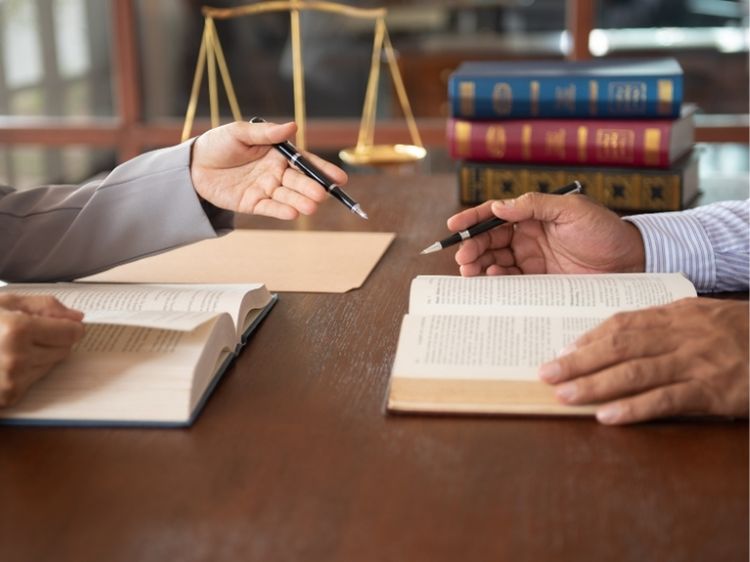When medical devices go wrong, they can cause life-changing injuries or even death. That’s where medical device lawyers step in. These legal professionals specialize in cases involving defective or malfunctioning medical devices, holding manufacturers accountable for the harm caused to patients. Their role is crucial, especially in a world where medical advancements are booming, but not all products are as safe as they should be.
What Are Medical Device Lawyers?
Medical device lawyers are personal injury attorneys who focus on cases involving faulty medical devices. They represent clients who have suffered harm due to devices that were improperly designed, manufactured, or marketed. These cases can involve anything from defective pacemakers to malfunctioning surgical implants, and the consequences are often severe. In short, they fight for justice and compensation for those injured by medical devices that were supposed to help them, not hurt them.
Why You Might Need a Medical Device Lawyer
If you’ve been injured by a medical device, you might be wondering, “Do I really need a lawyer?” The short answer is yes. Here’s why:
- Complexity of Cases: Medical device cases are often highly complex, involving technical details about the product, medical records, and regulations. A lawyer specializing in this area has the expertise to navigate these challenges.
- Dealing with Large Corporations: Manufacturers of medical devices are often large companies with vast resources. Going up against them without legal help can be like David fighting Goliath—except in this case, David needs a lawyer.
- Maximizing Compensation: A medical device lawyer knows how to assess the true extent of your injuries, including long-term impacts like medical costs, lost wages, and emotional trauma. They’ll fight to get you the compensation you deserve.
Types of Medical Device Cases
Medical device lawyers handle a variety of cases, often depending on the type of product that caused harm. Here are a few common examples:
- Pacemaker defects: Faulty pacemakers can lead to life-threatening complications, including heart attacks or failure.
- Hip and knee replacements: When these devices malfunction, they can cause severe pain, mobility issues, and require costly revision surgeries.
- Transvaginal mesh failures: Used to treat pelvic organ prolapse, defective mesh implants can cause chronic pain and complications, requiring further surgeries.
- Defective drug pumps: Used to deliver medications directly into a patient’s bloodstream, these devices can lead to dangerous overdoses or medication shortages when they fail.
Each of these cases requires careful investigation and expertise, which is where medical device lawyers come into play.
What to Expect When Working with a Medical Device Lawyer
Hiring a lawyer might seem daunting, but it doesn’t have to be. Here’s a breakdown of what to expect:
- Consultation: Most medical device lawyers offer free consultations. During this meeting, they’ll review your case, listen to your story, and provide an assessment of your legal options.
- Investigation: Once they take on your case, they’ll launch an in-depth investigation. This involves gathering evidence like medical records, product documents, and expert testimony to build a strong case.
- Negotiation or Litigation: In many cases, lawyers will try to negotiate a settlement with the device manufacturer or insurance company. If that fails, they’ll take the case to court to fight for your rights.
How to Choose the Right Medical Device Lawyer
Picking the right lawyer is crucial for the success of your case. Here are a few tips to help you choose the best medical device lawyer for your situation:
- Experience: Look for a lawyer with experience in handling medical device cases. This isn’t a one-size-fits-all area of law, and the more experience your lawyer has, the better.
- Track Record: Find out if the lawyer has a history of winning cases similar to yours. Ask about settlements and trial outcomes.
- Communication: You want a lawyer who will keep you informed throughout the process. Make sure they’re easy to communicate with and open to answering your questions.
- Reputation: Check online reviews or ask for referrals from others who have gone through similar experiences. A good reputation is often a sign of a lawyer’s dedication and success.
FAQs About Medical Device Lawyers
Q: How long do I have to file a lawsuit?
A: The timeframe varies depending on your state’s statute of limitations, which typically ranges from two to four years. It’s crucial to act quickly after discovering the injury.
Q: Can I afford a medical device lawyer?
A: Most medical device lawyers work on a contingency fee basis, meaning they only get paid if you win your case. This makes it easier for people to access legal help without upfront costs.
Q: What kinds of damages can I recover?
A: You can typically recover medical expenses, lost wages, pain and suffering, and in some cases, punitive damages to punish the manufacturer for negligence.
Q: Will my case go to trial?
A: While many cases are settled out of court, some do go to trial if a fair settlement cannot be reached. Your lawyer will advise you on the best course of action based on the specifics of your case.
The Importance of Holding Manufacturers Accountable
One of the primary goals of medical device lawyers is holding manufacturers accountable for the products they create. This not only ensures justice for their clients but also helps prevent future injuries. By winning cases, they send a message to the industry that safety must come first. Manufacturers may be more cautious in the future, leading to better testing, stricter regulations, and fewer defective products entering the market.
Conclusion: Why You Should Consult a Medical Device Lawyer
If you’ve been harmed by a medical device, don’t wait to consult a lawyer. These professionals play a critical role in seeking justice and compensation for those affected by defective products. With their expertise and dedication, they help patients recover both financially and emotionally from the damage caused by faulty devices.
So, if you or a loved one is dealing with the aftermath of a medical device failure, reach out to a medical device lawyer today. They’ll guide you through the process, fight for your rights, and help you on the road to recovery.
Authoritative Links (Plain URLs):
- https://www.fda.gov/medical-devices
- https://www.nolo.com/legal-encyclopedia/defective-medical-devices
- https://injury.findlaw.com/medical-malpractice/defective-medical-devices



